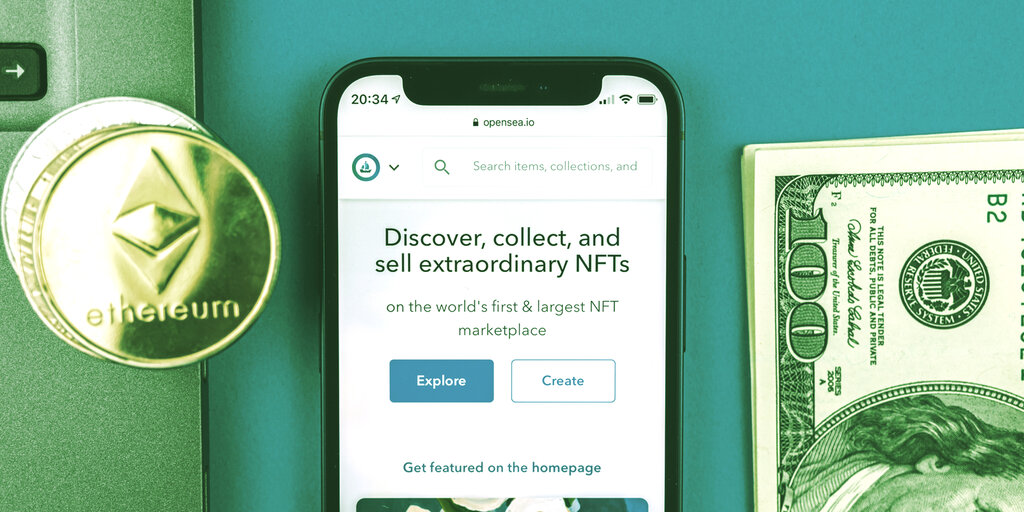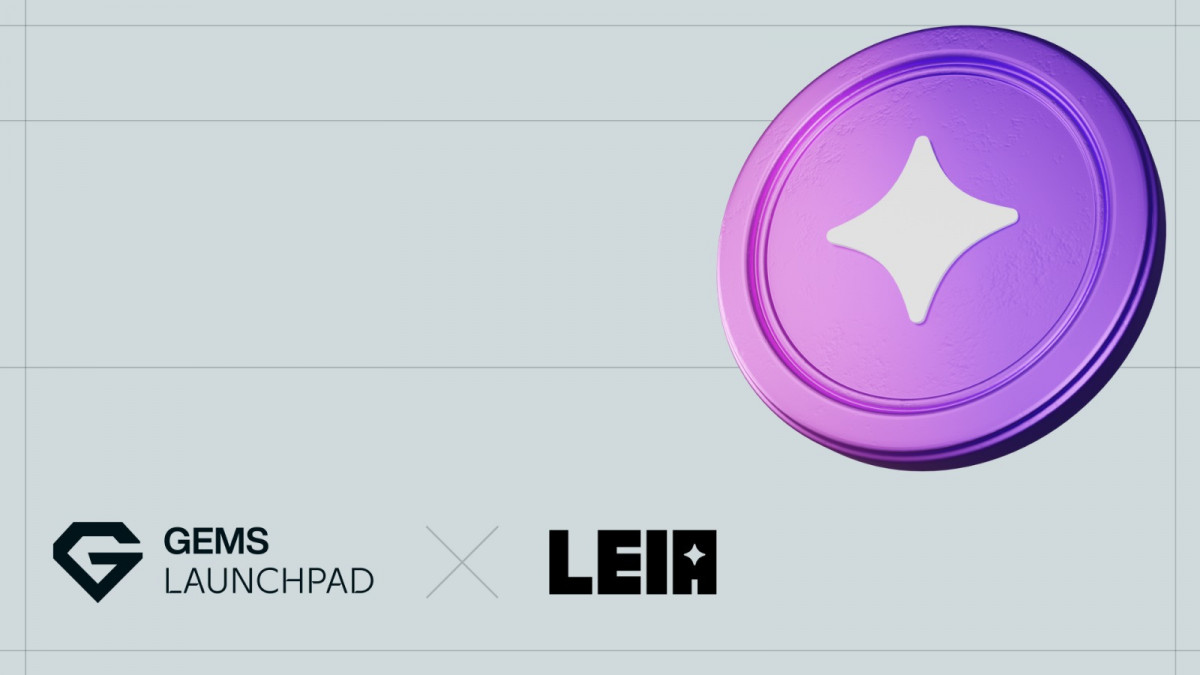
In brief
- NFT marketplace OpenSea announced this afternoon that it will continue to enforce creator royalty fees going forward.
- The platform said on Saturday that it would consider making them optional for traders after rival marketplaces rejected them.
OpenSea, the largest NFT marketplace by trading volume, announced today that it will continue to enforce creator royalties on NFTs following significant pushback from the community.
“We will continue to enforce creator fees on all existing collections,” the firm wrote in a tweet thread. “We’re awed by the passion we’ve seen from creators and collectors alike this week. We were looking for your feedback, and we heard it, loud and clear.”
On Saturday, OpenSea said that it was reconsidering its policy towards enforcing creator royalty fees on NFTs, following a wave of rival marketplaces that had either rejected such fees or made them optional for traders to pay. A royalty fee is set by the NFT artist or creator, and typically falls between 5% and 10% of the secondary sale price.
2/ When we began seeking guidance from our community, it was to understand a range of perspectives (from creators, collectors, and builders in this space) that would help us make sense of trends and behaviors we were observing.
— OpenSea (@opensea) November 9, 2022
OpenSea set a self-imposed December 8 deadline to take in community feedback and consider possible courses of action, which it said included making creator fees optional for traders, only enforcing them on some types of NFT collections, or implementing new enforcement methods.
The potential for the market’s largest NFT platform to stop enforcing royalties did not sit well with many prominent creators—including Bored Ape Yacht Club creator, Yuga Labs—who vocally pushed back against OpenSea and began organizing amongst themselves.
On Tuesday, noted streetwear brand The Hundreds stepped up its response, announcing that it had canceled a planned OpenSea NFT drop this week. “May it be a reminder to them, to you, and the world that the artists are always in control,” the firm’s founders wrote.
As its tweet suggests, OpenSea got the message “loud and clear” from the community. The $13.3 billion Web3 startup explained that it was “seeking guidance from our community,” but pointed to data showing that the share of market-wide creator royalty fees is tumbling in recent weeks as royalties-rejecting marketplaces gain steam.
“Unless something changes soon, this space is trending toward significantly fewer fees paid to creators,” OpenSea wrote. “No policy that we implement will reverse this trend if this behavior continues.”
OpenSea encouraged creators to create additional incentives for traders to honor royalties and point them towards marketplaces that honor them. It also pointed towards implementing additional enforcement methods.
On Saturday, OpenSea announced a royalties enforcement system for newly-created NFT projects that is built around a blacklist that blocks listed marketplaces from handling those transactions. The method targets marketplaces that do not fully enforce royalty fees, which are among OpenSea’s biggest rivals—a move that some have called anti-competitive.
Stay on top of crypto news, get daily updates in your inbox.
Read More: decrypt.co








 Bitcoin
Bitcoin  Ethereum
Ethereum  Tether
Tether  XRP
XRP  Solana
Solana  Dogecoin
Dogecoin  USDC
USDC  Cardano
Cardano  Lido Staked Ether
Lido Staked Ether  TRON
TRON  Avalanche
Avalanche  Wrapped stETH
Wrapped stETH  Sui
Sui  Toncoin
Toncoin  Chainlink
Chainlink  Shiba Inu
Shiba Inu  Wrapped Bitcoin
Wrapped Bitcoin  Stellar
Stellar  Hedera
Hedera  Polkadot
Polkadot  WETH
WETH  Bitcoin Cash
Bitcoin Cash  LEO Token
LEO Token  Uniswap
Uniswap  Litecoin
Litecoin  Pepe
Pepe  Hyperliquid
Hyperliquid  Wrapped eETH
Wrapped eETH  NEAR Protocol
NEAR Protocol  Ethena USDe
Ethena USDe  USDS
USDS  Internet Computer
Internet Computer  Aptos
Aptos  Aave
Aave  Mantle
Mantle  Cronos
Cronos  Render
Render  POL (ex-MATIC)
POL (ex-MATIC)  Ethereum Classic
Ethereum Classic  Bittensor
Bittensor  MANTRA
MANTRA  Monero
Monero  WhiteBIT Coin
WhiteBIT Coin  Tokenize Xchange
Tokenize Xchange  Dai
Dai  Artificial Superintelligence Alliance
Artificial Superintelligence Alliance  Arbitrum
Arbitrum